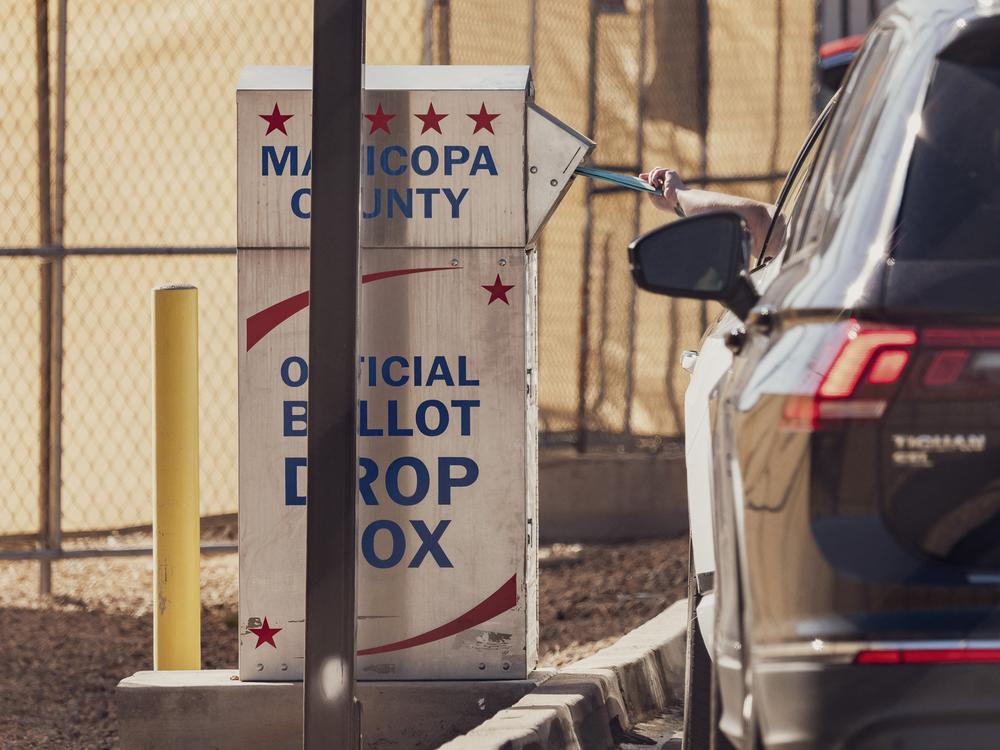Section Branding
Header Content
Ballot drop boxes are often the subject of false claims. Here's what to know
Primary Content
Election officials say ballot drop boxes are a secure and accessible way for voters in many states to return their mail ballots, but they’ve also been the subject of numerous conspiracies and attacks from former President Donald Trump and other Republicans.
Some states that primarily vote by mail have long used drop boxes, but during the peak of the COVID pandemic in 2020, more states offered them or expanded their use.
The tamper-proof boxes are generally installed outside places like election offices, libraries and other government buildings, with rules about chain of custody and how ballots are collected. Many drop boxes are kept under surveillance. Some experts note they provide for safer and faster return of ballots than the postal service.
An Associated Press survey of most states found no major issues with drop boxes in the 2020 general election.
But after Trump’s election defeat, drop boxes became a target for baseless accusations of fraud, including the claim that Democrats stole the 2020 election by using ballot “mules” to stuff ballot drop boxes with fraudulent votes, popularized by right-wing commentator Dinesh D’Souza’s book and movie 2000 Mules.
The claims made in 2000 Mules were proven false by law enforcement, elections officials and media, and its publisher halted distribution of the film and book and apologized to a Georgia voter accused of illegally dropping off multiple ballots into a drop box.
What to expect during the 2024 election
Compared with 2020, fewer people will likely vote by mail in 2024, in part because of a shift toward in-person early voting, and partly because some states — including key swing states — have enacted restrictions on requesting and returning mail ballots.
In Georgia, for example, lawmakers drastically reduced the availability of drop boxes after the 2020 election, capping the number of boxes that can be offered, and limiting their access to inside early voting locations and only during early voting hours. A 2022 NPR/WABE/Georgia Public Broadcasting analysis found the restrictions disproportionately impacted access in larger counties that are home to more Democrats and nonwhite voters.
In Wisconsin, a newly liberal-leaning state supreme court in July overturned a ban on drop boxes, but Wisconsin election officials say only a fraction are offered this fall, compared with 2020.
On the other hand, Michigan changed its rules to make voting by mail easier, including an increase in ballot drop boxes, while Nevada transitioned to a universal vote-by-mail system that permanently enshrined some changes made during the pandemic.
According to the National Conference of State Legislatures, 27 states explicitly allow drop boxes and 12 states — mostly in the South — do not.

